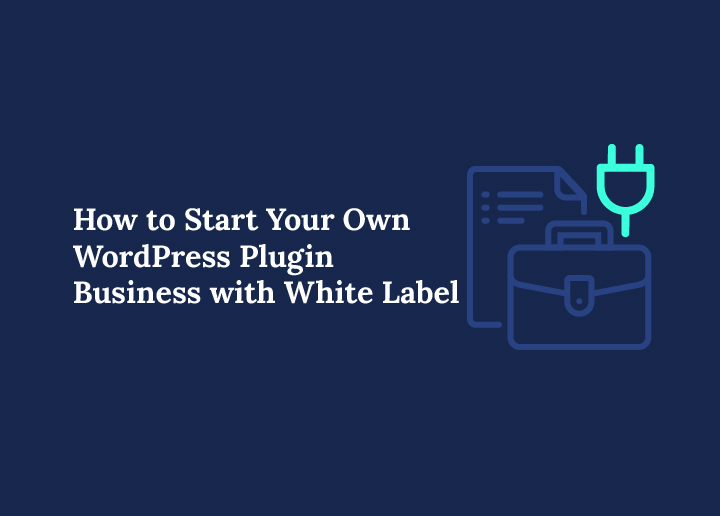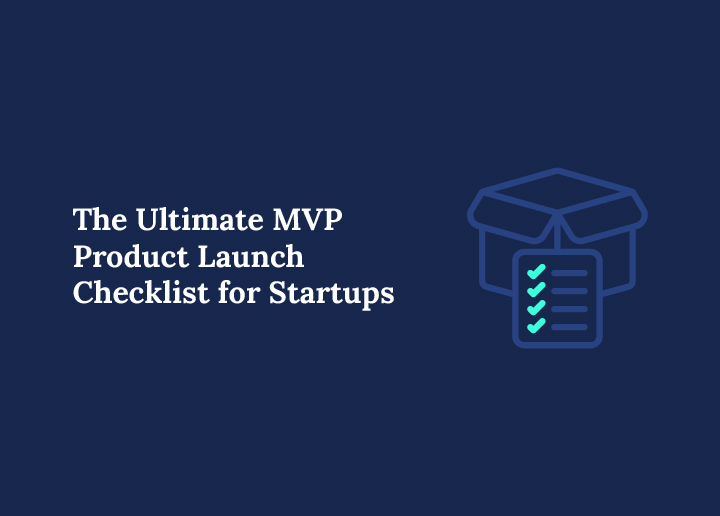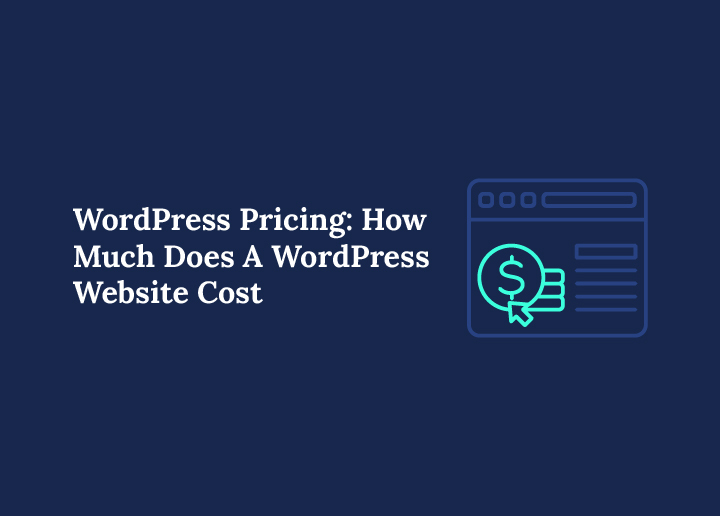Ever dreamed of owning a WordPress plugin business, without writing a single line of code? Thanks to white label solutions, that dream is more achievable than ever.
The WordPress ecosystem powers over 43.5% of the internet, and plugins are at the heart of what makes it so powerful. From SEO tools to security, design enhancements to eCommerce add-ons, plugins are what turn a basic WordPress site into a custom experience. And the demand is only growing.
Now, imagine tapping into that booming market with your own line of branded plugins. That’s where white label WordPress plugins come in.
In simple terms, white labeling lets you take an existing, fully-developed plugin and sell it under your own brand. No need to build from scratch, manage developers, or worry about technical support, you just focus on marketing, branding, and growing your business.
Let’s dive in and turn your business idea into a plugin empire.
What is a White Label WordPress Plugin?
A white label WordPress plugin is a fully developed plugin created by someone else that you can rebrand and sell as your own. You don’t have to build the plugin from scratch; instead, you get access to a ready-made product that you can rename, customize visually, and market under your company name.

Key Characteristics of White Label Plugins:
- The core plugin is already coded, tested, and ready to use.
- You can apply your own branding, like your logo, company name, and colors.
- Often comes with support and documentation that you can white label too.
- You’re typically not listed as the developer, but you’re the one marketing and selling it.
White Label vs Custom Plugin Development:
While custom plugin development means building a plugin from the ground up (which requires hiring developers, investing time, and managing updates), white label plugins let you skip the development phase entirely. This drastically reduces costs and helps you get to market much faster.
Custom plugins give you complete control but take time and technical resources. White label plugins are ideal if your focus is on marketing, sales, and customer relationships, rather than software development.
Discover: Best White Label Agencies
Ready to Start Your Own Plugin Business?
Focus on building amazing plugins while we handle the white label development, support, and maintenance behind the scenes.
Why Start a WordPress Plugin Business with White Label?
Starting a plugin business might sound technical or overwhelming, but with white label solutions, it’s surprisingly doable, even for non-developers.
Growing Demand for WordPress Plugins
The WordPress plugin ecosystem is booming.
With over 60,000 plugins in the official repository and countless premium ones being sold every day, there’s a huge demand for plugins that improve SEO, site performance, design, security, and eCommerce functionality.
Businesses are always looking for tools to enhance their websites, and that’s your opportunity.
Low Entry Barrier
Building a plugin from scratch can be expensive, time-consuming, and risky.
You’d need a developer (or a team), testers, a support system, and constant updates. On the flip side, white label plugins let you jump right in, skipping all the technical complexities.
You just need a provider, a brand strategy, and a plan to market your plugin. It’s a much easier entry point, especially for agencies or solo entrepreneurs.
Recurring Revenue Potential
Many white label plugins are designed to be sold as subscription-based products, meaning you can earn monthly or annual recurring revenue.

This creates a more predictable income stream, which is ideal for agencies looking to scale.
Plus, offering plugins can open the door to upselling other services like website care, hosting, or full web design.
Key Benefits of White Label Plugin Reselling
White label plugin reselling isn’t just a shortcut, it’s a smart business strategy. Whether you’re an agency looking to expand your offerings or an entrepreneur entering the WordPress market, white labeling gives you a running start. Here’s why it works so well:
Save Time and Money on Development
Creating a high-quality WordPress plugin from scratch takes time, skill, and a sizable budget. You’ll need to hire website developers, conduct testing, ensure compatibility with different WordPress versions, and stay on top of regular updates.
With white label plugins, the heavy lifting is already done for you. You simply rebrand the finished product, customize the interface as needed, and you’re ready to start selling. This means fewer upfront costs and a much faster path to revenue.
Focus on Marketing and Customer Relationships
When you don’t have to worry about writing code or fixing bugs, you can focus on what matters most, growing your customer base. Instead of spending hours on development, your time can go into promoting your plugin, building partnerships, nurturing leads, and providing great support.
This is especially helpful for digital agencies and freelancers who already work closely with clients and want to add a new product to their lineup. You can bundle plugins with existing services like SEO, design, or maintenance to increase value, and revenue.
Scale Faster with Proven Solutions
Scaling a product business is tough if your core product is still in development. With white label plugins, you’re starting with a proven solution that’s already functioning well. This allows you to start selling immediately and scale quickly by focusing on sales channels, pricing models, and customer onboarding.
Plus, most white label plugin providers offer regular updates and technical support, so you’re not on your own as your customer base grows.
Offer Plugins Under Your Own Brand
Branding is everything. With white label plugins, you get to put your name and logo on a high-quality product, giving you instant credibility and positioning you as a product creator, even if you didn’t build the software yourself.
This not only strengthens your brand but also builds customer trust and loyalty. Clients see you as the expert, which makes them more likely to return for future purchases or services.
Step-by-Step: How to Start Your WordPress Plugin Business
Starting a plugin business may sound complex, but with a white label approach, it becomes far more accessible, even for non-technical entrepreneurs. Below is a comprehensive, step-by-step guide to help you launch your own branded WordPress plugin business using white label solutions.
Identify Your Niche or Plugin Type
The first step to starting a successful plugin business is choosing the right niche. WordPress powers over 43.5% of the internet, and its plugin market is both massive and diverse. To stand out in this crowded space, it’s important to focus on a specific category or audience.
Ask yourself: Who are you creating this plugin for? What problem will it solve? Is it something agencies can resell to clients? Is there recurring demand?
Here are some popular plugin categories to consider:
- SEO Plugins: Help users optimize metadata, generate sitemaps, or add schema markup.
- Performance Optimization Plugins: Focus on improving load times with caching, image compression, and script management.
- Security Plugins: Offer firewall protection, login security, malware scanning, and backups.
- Design & UI Enhancements: Plugins for adding sliders, pop-ups, page animations, or visual editing tools.
- WooCommerce Add-ons: Extend eCommerce functionality with plugins for advanced filters, product bundles, custom checkout pages, etc.
- Membership or LMS Tools: Help users create online course platforms or membership sites with gated contents.
Choosing a niche not only helps you build a focused brand but also makes it easier to target your ideal customers with relevant content and marketing.
Choose a White Label Plugin Provider
Once you’ve picked a plugin type, the next step is finding a reputable white label provider. This is one of the most important decisions you’ll make, as the quality and support behind the plugin will directly reflect on your brand.
Here are a few things to look for when evaluating providers:
- High-quality, well-coded plugins: The plugin should follow WordPress development best practices and work seamlessly with major themes and plugins. Poor code can lead to security vulnerabilities, compatibility issues, and frustrated customers.
- Ongoing updates and support: WordPress evolves rapidly. Your white label plugin should receive regular updates to ensure it remains compatible with new WordPress versions. Also, make sure the provider offers timely support for bug fixes or questions you might have.
- White labeling permissions: Not all plugin developers allow complete rebranding. Look for providers that explicitly allow you to change the plugin name, logo, color scheme, and documentation.
- Licensing and terms: Carefully review the licensing terms. Some providers allow unlimited use, while others restrict the number of client sites you can install the plugin. Make sure the license fits your business model
Customize and Rebrand the Plugin
Now it’s time to transform the plugin into your own branded product. This is what makes white labeling powerful, you take a proven, high-quality plugin and give it a fresh identity under your brand.
Start by:
- Renaming the plugin to something unique and relevant to your niche.
- Adding your company name and logo to the dashboard interface.
- Customizing color schemes and icons to match your brand style.
- Rewriting or modifying documentation and onboarding messages so they align with your tone and brand voice.
- Removing any mentions of the original developer (if permitted under the license).
Some white label plugin providers offer built-in tools or white-label dashboards to make this easier. If not, you may need light developer assistance to make those visual tweaks.
Also, double-check licensing terms to ensure you’re not violating any restrictions by rebranding.
Set Up a Website or Landing Page
To sell your plugin, you’ll need a professional-looking website or landing page that instills trust and drives conversions. This is where you showcase your product’s value and guide potential buyers to take action.

Key elements to include on your site:
- Clear headline and product description that explains what the plugin does and who it helps.
- Feature list with benefits explained in plain language, use bullet points, icons, or short videos for impact.
- Pricing plans with one-time, monthly, or annual options. Include what’s included in each tier (support, updates, number of licenses, etc.).
- Screenshots or demo videos showing the plugin in action. This builds credibility and helps users visualize how it works.
- Social proof such as testimonials, user reviews, or case studies.
- A FAQ section to address common questions or objections.
- Secure checkout via Stripe, PayPal, WooCommerce, or SaaS platforms.
- Contact/support section where users can reach out for pre-sale questions or post-purchase support.
A clean, user-friendly design builds trust and makes it easier to convert visitors into paying customers.
Create a Marketing Strategy
Even the best plugin won’t sell if no one knows about it. This is where marketing becomes your secret weapon. Your job now is to attract the right audience, educate them about your plugin, and convert them into loyal users.
Here are some proven tactics:
- Search Engine Optimization (SEO): Target keywords like “best [plugin type] plugin for WordPress” and write detailed blog posts, tutorials, and comparisons.
- Content marketing: Publish helpful articles, how-to guides, and case studies that highlight your plugin’s value.
- Email marketing: Build a list using a lead magnet or free version of your plugin, then use nurturing emails to drive upgrades.
- Affiliate marketing: Set up an affiliate program and invite bloggers, influencers, and agencies to promote your plugin in exchange for commission.
- YouTube videos and product walkthroughs: These help users see your plugin in action and boost trust.
Focus your energy on platforms where your target users already hang out, and offer value before selling.
White Label Plugin Business Models
One of the most exciting things about starting a white label plugin business is the flexibility in how you sell and earn. Whether you prefer upfront revenue or long-term recurring income, there’s a business model that can work for you. Here are some of the most common and effective models:
One-Time Purchase Model
In this model, users pay a single fee to download and use your plugin. It’s simple and attractive to many customers who don’t like subscriptions. You can offer tiered pricing based on features, number of site licenses, or support duration.
For example:
- Personal license: 1 site, basic support: $29
- Business license: 5 sites, 1-year support: $59
- Developer license: Unlimited sites, priority support: $99
This model works well if your plugin offers a straightforward feature set that doesn’t require ongoing updates or frequent new features.
Subscription Model (Monthly or Annual)
The subscription model provides more consistent, long-term income and works best for plugins that need regular updates or offer premium features over time.
You can charge users monthly or yearly, and include:
- Access to premium features
- Regular updates
- Priority customer support
- Early access to new features
This model is great for plugins that evolve over time, such as SEO tools, marketing integrations, or security plugins. It also aligns well with SaaS-like value delivery.
Bundled Plugin Deals
If you offer more than one plugin, or plan to, you can bundle them together into a plugin suite. This can significantly increase your average order value and create more perceived value for your customers.
Example:
- Individual plugins for $49 each
- Full suite of 5 plugins for $199/year
- Bonus: Add-ons or exclusive templates included
Agencies and developers especially love bundles because they often manage multiple sites and want versatile tools in one place.
Upselling Plugins to Existing Clients
If you’re a freelancer or agency, upselling plugins to your current clients can be a seamless revenue booster. Clients trust you, and if you already built their site, they’ll be more open to your plugin recommendations, especially if they’re branded under your business.
Here’s how you can upsell:
- Offer your plugin as part of a website care plan
- Include it in your onboarding packages
- Recommend it during site audits or redesigns
- Offer discounts for existing clients as part of loyalty or referral programs
Upselling is a low-effort, high-reward tactic that leverages relationships you already have.
Who Should Consider This Business?
White label plugin reselling isn’t just for developers. In fact, it’s perfect for non-coders, agencies, and entrepreneurs who understand digital marketing and client needs. Here’s who should seriously consider starting this business:
Freelancers and Agencies
If you already build or manage WordPress websites for clients, adding your own branded plugins is a natural upsell. It increases your recurring revenue and positions you as a product creator, not just a service provider.
For example, an agency that focuses on SEO could resell a white label SEO plugin under its brand and offer it as part of monthly service packages. Clients benefit from a tailored solution, and you boost your income and brand value.
WordPress Service Providers
If you run a business offering WordPress-related services like hosting, maintenance, backups, or performance optimization, white label plugins are a great way to expand your offerings without building new tools from scratch.
You can bundle your plugins with your existing services or create tiered plans where higher-level customers get access to premium features. This helps increase customer retention and lifetime value.
SaaS Platforms Looking to Expand Offerings
SaaS businesses that cater to small businesses, bloggers, or eCommerce owners can use white label plugins to enhance their product ecosystem. For instance, a SaaS tool focused on digital marketing can offer a branded WordPress plugin that integrates with their software and helps customers manage marketing tasks directly from their sites.
By offering white label plugins, SaaS companies create additional touchpoints, strengthen brand loyalty, and unlock new monetization channels within the WordPress community.
Read More: Complete SEO Checklist
Conclusion
Starting a WordPress plugin business doesn’t have to be complex or costly. With white label plugins, you can skip the technical development phase and jump straight into selling a high-quality, rebranded product under your own name.
This approach saves time, reduces upfront investment, and lets you focus on what truly matters, building your brand, marketing your plugin, and serving your customers.
Whether you’re a freelancer, agency, or SaaS company, the white label model offers a scalable path to creating recurring revenue and expanding your services.
By offering proven plugin solutions tailored to your niche, you position yourself as a product creator and add real value to your audience. If you’ve been thinking about launching your own digital product, now is the perfect time to start. Explore white label opportunities, choose the right provider, and take the first step toward building your own plugin business today.



